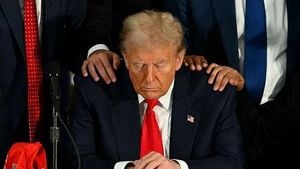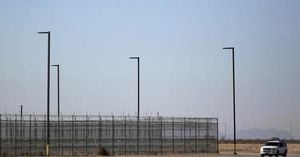Belgium’s decision to move toward recognizing a Palestinian state marks a bold pivot in European diplomacy, sending ripples through international politics and igniting fierce debate across the continent. On September 2, 2025, Belgian Foreign Minister Maxime Prévot announced that Belgium would formally take steps to recognize Palestinian statehood, joining a swelling chorus of Western nations reconsidering their stance as Israel’s military offensive in Gaza intensifies. The official announcement is set to be made at the United Nations General Assembly, which begins in New York on September 9, 2025.
Yet, this recognition comes with significant caveats. As reported by AP, Belgium’s move is conditional: it will only be finalized once all Israeli hostages held in Gaza are released and Hamas no longer exercises any form of governance in the territory. Prévot emphasized that the process would be completed “via a royal decree,” but the stringent conditions mean that actual recognition may not materialize for some time. The announcement, however, signals growing international support for Palestinian statehood, with Belgium poised to join more than 140 countries—over a dozen of them European—that have already taken this step.
According to TIME, the Belgian government is not stopping at diplomatic recognition. Prévot outlined a slate of twelve sanctions targeting Israel, its government, and products originating from Israeli settlements in the West Bank. These measures include banning imports from Israeli settlements, reviewing procurement policies with Israeli firms, restricting consular assistance to Belgian citizens living in those communities, and even banning military overflights and transit from Israel. Additionally, Belgium plans to designate key Hamas leaders, violent settlers, and two far-right Israeli ministers—Itamar Ben-Gvir and Bezalel Smotrich—as persona non grata. “This is not about sanctioning the Israeli people, but about ensuring that international and humanitarian law is respected by its government and acting in the hope of evolving the situation on the ground,” Prévot stated on social platform X.
The sanctions have drawn a sharp rebuke from Israeli officials. As reported by AP and TIME, National Security Minister Itamar Ben-Gvir, one of the officials targeted by Belgium’s sanctions, lashed out: “The self-righteous European countries that are being manipulated by Hamas—at the end they’ll discover terrorism on their own flesh.” Israel’s Foreign Ministry went further, dismissing recent accusations of genocide as “an embarrassment to the legal profession and any academic standard,” according to spokesperson Oren Marmorstein.
This diplomatic escalation comes amid broader Western efforts to recognize Palestinian statehood. France and the United Kingdom have announced similar intentions, with an event planned at the upcoming U.N. General Assembly. Canada, Australia, New Zealand, Norway, and Malta have also voiced support, often conditioning recognition on reforms within the Palestinian Authority and the removal of Hamas from power in Gaza. The current Palestinian leadership, viewed by many Palestinians as corrupt and autocratic, is seen by Israel as ineffective and uncommitted to peace. Israel, for its part, has asserted that neither the Palestinian Authority nor Hamas will play any role in postwar Gaza, arguing that recognition of Palestinian statehood would reward Hamas for its October 7, 2023, attack.
The October 7 attack by Hamas marked a grim turning point. According to TIME, Hamas militants killed over 1,200 Israelis and took around 250 hostages, sparking a devastating war that has since claimed over 63,000 Palestinian lives, including 361 deaths from starvation and malnutrition, as reported by Gaza’s Health Ministry. These figures, widely cited by humanitarian groups and international organizations, underscore the staggering human cost of the conflict, though independent verification remains challenging.
Belgium’s decision is also a response to mounting allegations of international law violations. The International Association of Genocide Scholars (IAGS) issued a resolution on September 1, 2025, stating that Israel’s actions in Gaza meet the legal definition of genocide, citing Article II of the 1948 United Nations Convention for the Prevention and Punishment of the Crime of Genocide. Israel has vehemently denied these accusations, maintaining its right to self-defense and rejecting what it calls a campaign of misinformation orchestrated by Hamas.
As FDD reports, Belgium’s move is part of a broader strategy to increase pressure on Israel. Prévot has called for the European Union to suspend its Association Agreement with Israel, particularly in areas like research programs and technical cooperation. This would represent a significant escalation, as the EU’s trade and academic ties with Israel remain deep despite growing political tensions. The ongoing conflict has sparked protests across Europe and strained political coalitions, especially in Belgium and neighboring countries like the Netherlands.
Notably, the international community’s response is far from monolithic. While some experts and analysts see statehood recognition as a long-overdue step toward justice for Palestinians, others warn it could backfire. David May, a senior analyst cited by FDD, argued, “The options for recognizing a Palestinian state range from bad to worse. The UK announcement that it would recognize a Palestinian state unless a ceasefire was reached encouraged Hamas to continue the war. Though other recognition announcements placed conditions on Hamas, the Palestinian street will still glorify the Iran-backed terrorist group for launching the war that resulted in global recognition of Palestinian statehood.” He added that such recognition could entrench Palestinian Authority intransigence and widen the gap between expectations and reality, making a peace deal even more elusive.
Others, like Ben Cohen of FDD, see Belgium’s actions as driven by domestic politics and part of a coordinated effort among several European nations—including France, Ireland, Spain, Slovenia, and Malta—to persuade other EU members to follow suit. Cohen characterized the threatened sanctions as a “concerted attempt to undermine and eventually eliminate the EU’s Association Agreement with Israel.”
Meanwhile, the humanitarian situation in Gaza continues to deteriorate. A U.N.-backed food security body recently confirmed that famine is occurring in Gaza City for the first time since the war began. On September 2, 2025, activist Greta Thunberg and others set sail from Barcelona on the Global Sumud Flotilla, aiming to deliver aid to Gaza. The flotilla plans to stop in Tunis before continuing its journey. Thunberg and several activists were previously detained and deported by Israeli authorities in June after attempting to reach Gaza by sea.
The Palestinians’ quest for statehood—encompassing the West Bank, annexed east Jerusalem, and Gaza, territories occupied by Israel since the 1967 Mideast war—remains at the heart of the conflict. As Belgium and other nations weigh their next moves, the world watches to see whether these diplomatic shifts will bring new hope or deepen the impasse that has long defined the Israeli-Palestinian struggle.
For now, Belgium’s conditional recognition stands as both a symbol of solidarity and a stark reminder of the complexities and contradictions that continue to haunt the path to peace in the Middle East.




